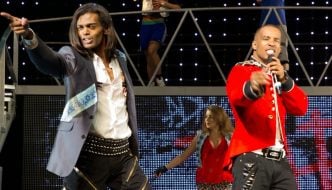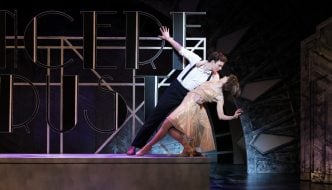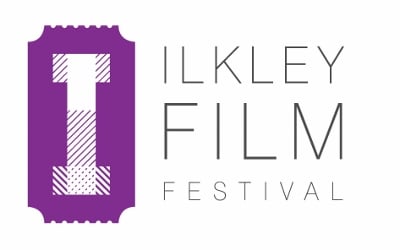TSOTA meets Vanessa Brooks AD of integrated theatre co. Dark Horse
February 20, 2015
[Images courtesy of Dark Horse]
Last month TSOTA had the pleasure of meeting with playwright Vanessa Brooks to discuss Dark Horse-the unique Huddersfield based theatre company of which she is artistic director. Dark Horse are tackling head on the issue of under-representation and misrepresentation of actors with learning disabilities within the world of theatre.
We discussed working with Channel 4, challenging an audience’s preconceptions and meeting the challenge of funding cuts. Here’s what was said…
TSOTA: For those who don’t know-who are Dark Horse?
VB: We are a national touring theatre company who make integrated theatre and we are unique in doing this. The work we make usually starts out at our base, The Lawrence Batley, then tours to venues like The Lowry and the Stephen Joseph as well as theatres in London. We create pieces of edgy drama and comedy and our work is pitched to a general adult audience. The work we do and the actors we cast represent society fully.
We also operate as a drama school. The courses we run for actors with learning disabilities are validated by ALRA (The Academy of Live and Recorded Arts) and our acting students uniquely for students with learning disabilities follow a Stanislavski based actor training model, the same model that actors who train at drama school use. They receive all the tools that they need to work in TV studios, on film sets and in theatre rehearsal processes. Nobody else does that when it comes to actors with learning disabilities. There are other theatre companies that work with people with learning disabilities but they don’t approach it in this way.

[Actor training, courtesy of Dark Horse]
We work with very established production teams-on the last national tour ‘Sing Something Simple’ the digital projection was done by Mic Pool who won a Tony award for the 39 Steps. At the moment we are working with designer Pip Leckenby who often works on Godber’s premieres. We believe that it is through working with the establishment and building a bridge into that part of the industry that we can really make changes. We worked with Channel 4 on an episode of Shameless and consulted and worked with the Producer and writer to develop roles for 8 of our actors and that influenced a whole commercial TV programme. We want to show people that with a few adaptations you can work with everyone regardless of disability.
TSOTA: Where does the name Dark Horse come from?
VB: It was a really interesting process. We had a different name before we underwent rebranding about three years ago. The previous name was ‘Full body and the voice’-you’d pick up the phone and people thought you were a slimming club, it just didn’t feel appropriate. It had a childlike quality. There is a perceptual complexity around working with actors who have a learning difficulty particularly when you want to place them professionally-they’re always perceived as doing something for fun. Our actors want to be considered the professional actors that they are. We want to surprise people and reverse expectation. We decided to rebrand with a name that reflected what we stand for. We thought of metaphors based around animals and eventually came up with ‘Dark Horse’-the underdog who little is known about but surprises you. We asked the actors and everyone concurred that it was a good idea. One of the actors said ‘well we’re all dark horses aren’t we.’ I think that it’s a good name that reflects where we’re at as a company.
TSOTA: Can you tell me more about your role within Dark Horse and what an average day is like for you-I imagine it is quite varied?
VB: In recent years I have written all the plays and have written and conceived all the actor training syllabuses. Alongside that I recruit people to come and work with our actors. My work also involves negotiating with theatres, putting together marketing materials, talking to pertinent media outlets to raise the profile of Dark Horse, strategic planning and production meetings. We also run an introduction to directing course (Regional Theatre of Young Directors Scheme) which is an opportunity for emerging directors to work with our actors and get to know a bit about the company.
It is very varied- I talk to a lot of different people within the course of a day. It is very rich-Dark Horse is a constantly evolving company. I think it was Stephen Joseph that said ‘all theatre companies should grow up and reinvent every 7 years.’ I think that this is very important- reinvention and change leads to new creative possibility, we don’t want to stay the same.
TSOTA: Are there any of Dark Horse’s productions that you feel particularly proud of?
VB: They’re all great. There are two different kinds of production that we’ve done in the past 6 years. The first of these are ensemble productions which feature solely our actors with learning disabilities. The constituency of our actors allows for the ensemble productions to be quite extreme imaginatively. I think you’d struggle to find anywhere else in the country where you could see 8 people with downs syndrome delivering a show to you that takes you on a proper journey-this is completely unique. That affords the opportunity to choose some really interesting premises…
‘Colony’ (2011) was a sort of epic saga set on an island where a group of people had been left stranded as the result of a genetic experiment and they were half human half ant. These half humans develop a society that was based on the social structure of an ant colony. The whole show was framed in a Jacobean language and had fantastic costumes and involved a lot of cross gender work.

[Colony, courtesy of Dark Horse]
Another one was ‘Harvest’ (2012) a post-apocalyptic drama which started with a nuclear explosion. It was a very dark play which drew upon the history of witch hunts and ended up with women being burnt at the stake. Our ensemble work is always very popular. Our shows always sell out, we never have problems selling tickets
‘Hypothermia’ was a really interesting play, written by myself and published by Josef Weinberger who publish most of my work. It was a national tour about Nazi eugenics policy with regard to people with learning disabilities during WW2. We don’t usually look at anything to do with issues/history around disability but this was a strong piece and it just felt like the right time to do it. The text was quite linear and literary juxtaposed with movement sequences and a composed score. The central character Oscar really only said ‘yes’ and ‘no’ throughout the play but he was able to carry the narrative.

[Hypothermia courtesy of Dark Horse]
Then there’s ‘Sing something Simple-we did two national tours of this. The challenge of this was to write comedy-historically I am a comedy writer but it’s hard to get someone to laugh at someone with down syndrome without drawing on so many sensitivities/difficulties for an audience.I wrote around one of our actors Joe Sproulle. To put the audience at ease and take them on a journey with him I got him to break the fourth wall and directly address the audience. He was fantastic-he had huge monologues that you wouldn’t anticipate an actor with down syndrome to be able to do this but he did this brilliantly.

[Joe Sproulle, Sing Something Simple, courtesy of Dark Horse]
TSOTA: What is the normal type of reaction that you get from people that haven’t seen this type of theatre before?
VB: It’s really interesting, endlessly interesting. A straightforward reaction is ‘that’s amazing, how wonderful, what a great show’ rather than focusing on the actor’s demographic which is good-you don’t really want them to do that, you just want them to be entertained. You get other reactions which are quite extraordinary like ‘he doesn’t have a learning disability…’ because people can’t believe the skill level of the actor. That calls a lot of things into question regarding hierarchy. Your article would need to be 85,000 words long for that! Generally people are amazed at the level of talent.
TSOTA: How are people selected for the vocational courses?
VB: We invite people who are interested to come along for a formal interview. During the interview we communicate what the expectations are-as they are very high. We want to recruit people that are going to take this seriously. They have to want to work with other people too as we work on ensemble principles- there are no stars here. If the person has the aptitude and the enthusiasm required they are invited to a workshop audition. If we think it’s right for the person and the company then they have a trial week where they attend classes etc. We want to be sure that both parties are happy and that the potential actors are truly committed. Many of our actors travel across Yorkshire to be here and we have enquiries from all over the UK. The students have to be really up for it. If people are offered a place there’s continuous assessment throughout the course, everything is objective driven.
We work with a vast range of people including people who have no speech at all. Quite often there’s an emphasis in other organisations on delivering vast amounts of dialogue-that’s not the case here at all. We’re a physical theatre company which works with text. We work with some people who have fantastic movement skills and others that don’t. We focus very much on fitness here-people do a lot of yoga and aerobic activity so they are physically fit.
TSOTA: Can you tell me about the funding that Dark Horse receives?
VB: Up to April this year we are funded as an Arts Council national portfolio organisation as we have been for the past 10 or so which means core, regular funding. After April we no longer have core funding so as an innovative and industrious organisation we have been looking at different ways of modelling that will allow a degree of sustainability. We hope that a bid that we have at the moment via the grants through the arts programme will enable the continuation of our exceptional and excellent actor training in a new very excited context called the conservatoire which we aim to start in September. This will involve bringing together emerging directors, writers and theatre companies regionally with the singular objective of pushing forward the world of actor training for people with learning disabilities. The year culminates in a symposium which Dark Horse will lead.

[Snakebite poster, courtesy of Dark Horse]
If you look at the representation of people with learning disabilities in theatre and TV it is in real jeopardy at the moment. Unless there is a collective push to keep this on the agenda something will be lost which is of great value. The emphasis won’t be on production work for a while, we have to have a shift of priority however we do have ‘Snakebite’ coming up in March. We always have many irons in the fire and we hope that there’s a way in the not too distant future to get our work out there.
TSOTA: What other types of funding have you looked into?
VB: We also make applications to small trusts and foundations for money. We recently launched something called the Applause Appeal: a way of communicating the value of the work we do and pushing that out there so that people know about us. As a consequence of that we have had some donations from some quite high profile people (including theatrical knights!) which is fantastic. Sir Derek Jacoby gave us quite a large donation, Sir Tom Stoppard did, Alan Bennet did, Jeremy Irons did, Miriam Margolyes did. I think interestingly within the mainstream theatre industry there is an understanding of the value and need of what we do. There are other areas where we really need to communicate that.
Watch the trailer for Dark Horse’s forthcoming production Snakebite:
SNAKEBITE premiere ensemble production- coming next from Dark Horse on Vimeo.
Follow Dark Horse on Twitter @darkhorse_uk and Facebook or visit their website www.darkhorsetheatre.co.uk




Comments